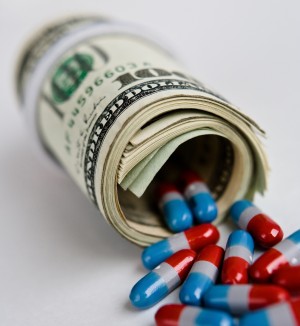Americans spent more than $300 billion on prescription drugs in 2010. As most consumers know, generic drugs are cheaper than their brand name counterparts. A federal report found consumers saved more than $1 trillion between 1999 and 2010 by using generic drugs. Generic drugs can't be made or sold until the patent on the original drug expires, usually after 20 years.
But what you might not know is that pharmaceutical companies have long engaged in pay-for-delay. These are payments to generic manufacturers to stay out of the market--to not sell cheaper versions of the drug. According to a Federal Trade Commission report [PDF], these deals have cost consumers $3.5 billion each year in higher prescription drug costs.
Today, California Watch reports that the California Supreme Court has agreed to take up the issue of pay-for-delay by reviewing a decade old class-action lawsuit having to do with the antibiotic Cipro, originally manufactured by Bayer.
From California Watch:
The suit argues that it was illegal for Bayer to pay a competitor to stay out of the market as part of a settlement in a legal dispute over the Cipro patent.
The deal forced hundreds of thousands of Californians to collectively overpay millions of dollars for the drug, the lawsuit claimed.
“Without generic competition, drug prices are enormously high,” said Joseph Saveri, an attorney with Lieff Cabraser Heimann & Bernstein, who is representing California consumers in the case. “These agreements are instrumental in keeping them enormously high.”
The class-action case stems from a 1996 settlement of a patent dispute over Cipro between Bayer and Barr Laboratories, which was planning to sell a generic version of the antibiotic. After five years of litigation – and in light of projections that Bayer could lose about $1 billion in profits over several years if a generic were to step into the market – the companies settled the case.
The terms of the agreement involved Bayer paying Barr nearly $400 million to delay making or selling the generic until after the expiration of the patent in December 2003. Between 1997 and the end of 2003, Bayer raised the price of Cipro by 16 percent and made a profit of about $5 billion, according to court documents.
There is an apparent tension between federal and state law on the pay-for-delay issue. Bayer has already won cases at the lower court level, by relying on federal case law. They believe they will also prevail before the California Supreme Court.
